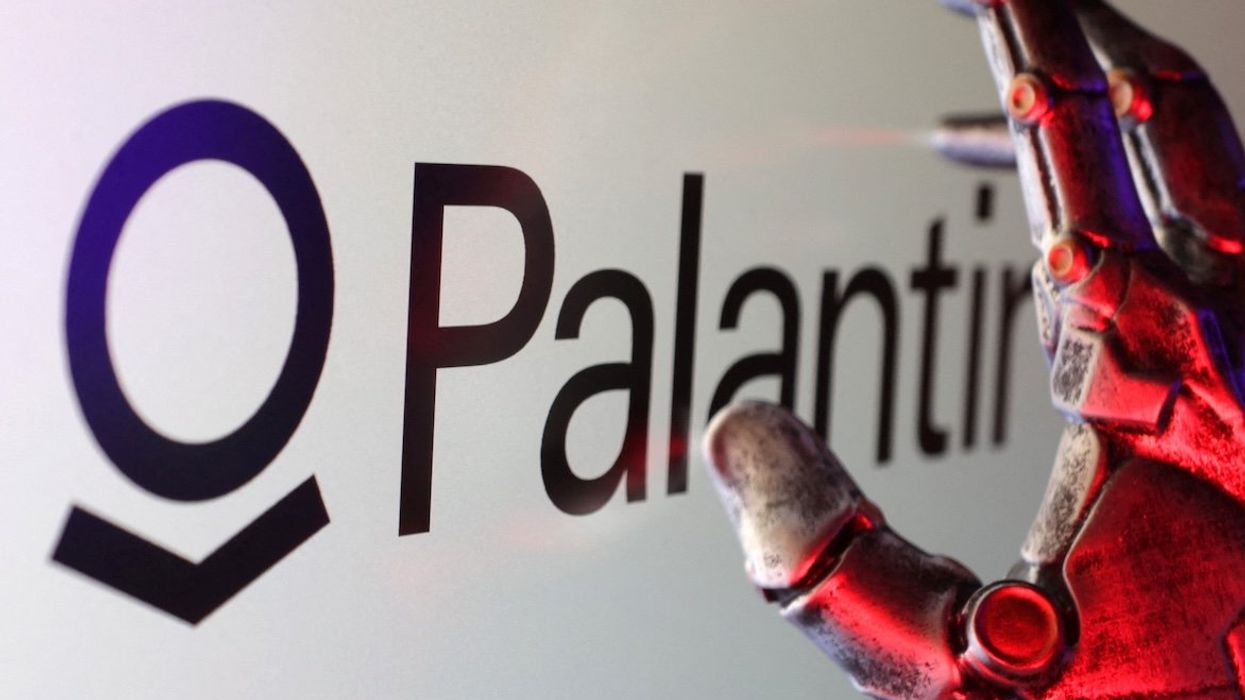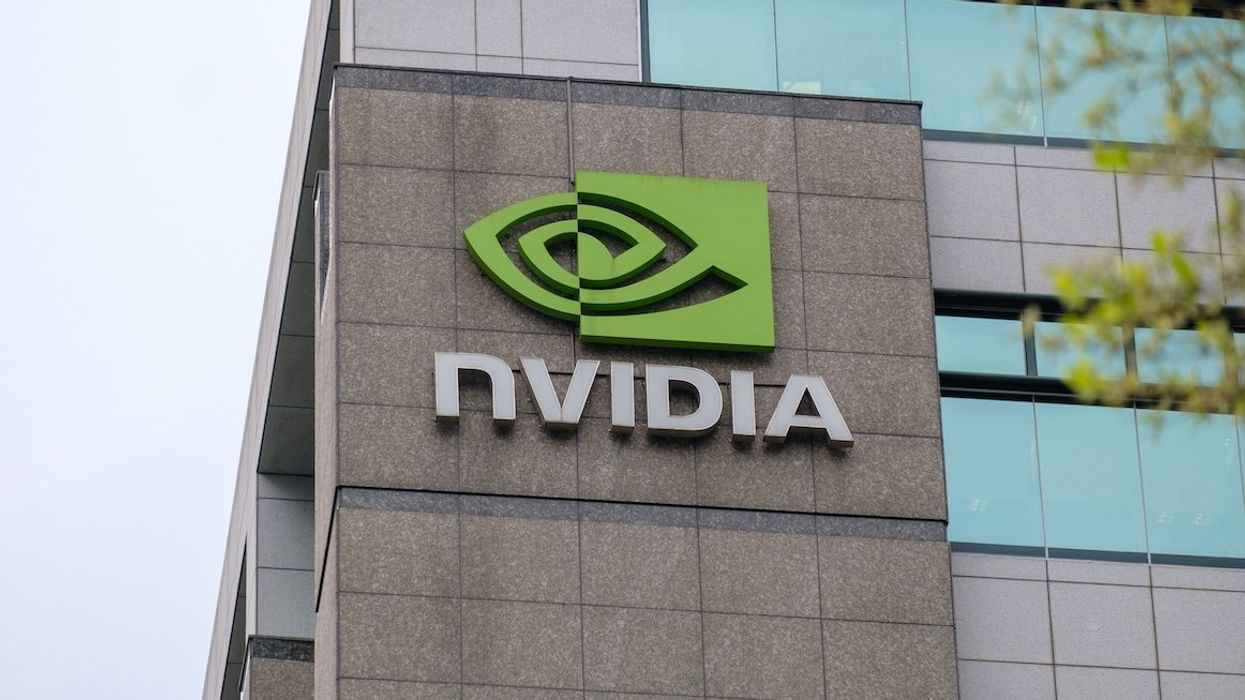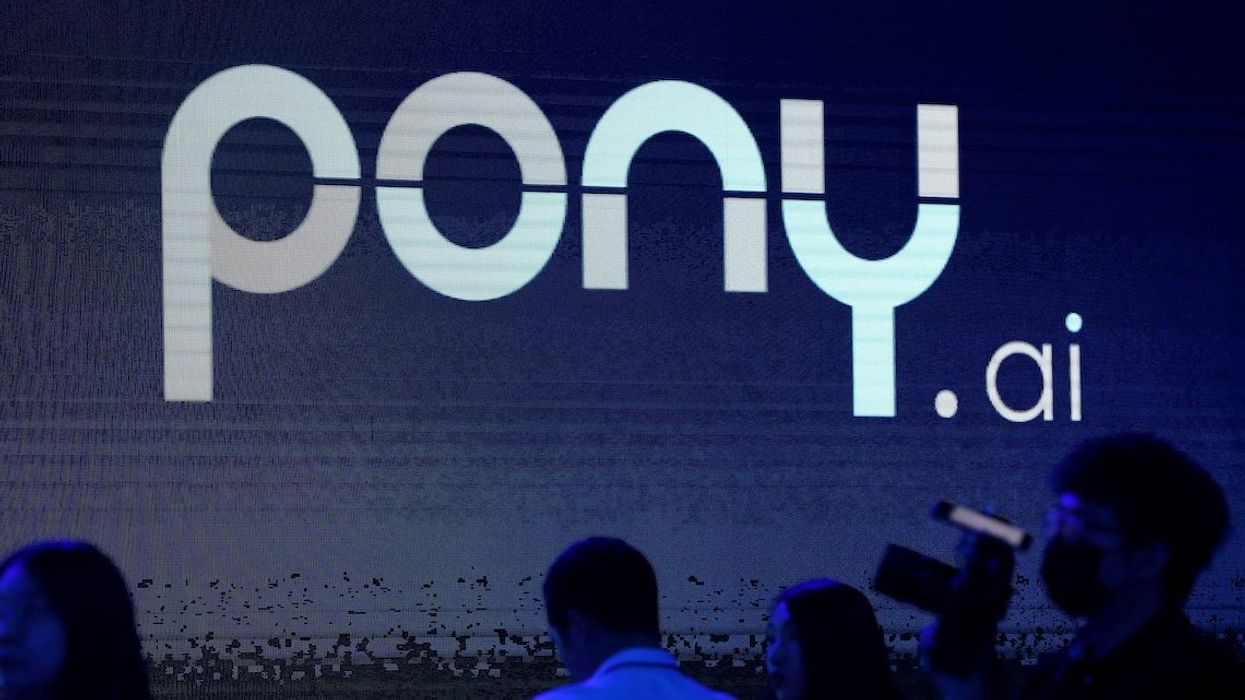VIDEOSGZERO World with Ian BremmerQuick TakePUPPET REGIMEIan ExplainsGZERO ReportsAsk IanGlobal Stage
Site Navigation
Search
Human content,
AI powered search.
Latest Stories
Sign up for GZERO Daily.
Get our latest updates and insights delivered to your inbox.
Global Stage: Live from Davos
WATCH
GZERO AI
The latest on artificial intelligence and its implications - from the GZERO AI newsletter.
Presented by
Marietje Schaake, International Policy Fellow, Stanford Human-Centered Artificial Intelligence, and former European Parliamentarian, co-hosts GZERO AI, our new weekly video series intended to help you keep up and make sense of the latest news on the AI revolution. In this episode, she talks about the potential pitfalls of the imminent EU AI Act and the sudden resistance that could jeopardize it altogether.
After a weekend full of drama around OpenAI, it is now time to shift to another potentially dramatic conclusion of an AI challenge, namely the EU AI Act, that's entering its final phase. And this week, the Member States of the EU will decide on their position. And there is sudden resistance coming from France and Germany in particular, to including foundation models in the EU AI Act. And I think that is a mistake. I think it is crucial for a safe but also competitive and democratically governed AI ecosystem that foundation models are actually part of the EU AI Act, which would be the most comprehensive AI law that the democratic world has put forward. So, the world is watching, and it is important that EU leaders understand that time is really of the essence if we look at the speed of development of artificial intelligence and in particular, generative AI.
And actually, that speed of development is what's kind of catching up now with the negotiators, because in the initial phase, the European Commission had designed the law to be risk-based when we look at the outcomes of AI applications. So, if AI is used to decide on whether to hire someone or give them access to education or social benefits, the consequences for the individual impacted can be significant and so, proportionate to the risk, mitigating measures should be in place. And the law was designed to include anything from very low or no-risk applications to high and unacceptable risk of applications, such as a social credit scoring system as unacceptable, for example. But then when generative AI products started flooding the market, the European Parliament, which was taking its position, decided, “We need to look at the technology as well. We cannot just look at the outcomes.” And I think that that is critical because foundation models are so fundamental. Really, they form the basis of so much downstream use that if there are problems at that initial stage, they ripple through like an earthquake in many, many applications. And if you don't want startups or downstream users to be confronted with liability or very high compliance costs, then it's also important to start at the roots and make sure that sort of the core ingredients of the uses of these AI models are properly governed and that they are safe and okay to use.
So, when I look ahead at December, when the European Commission, the European Parliament and Member States come together, I hope negotiators will look at the way in which foundation models can be regulated, that it is not a yes or no to regulation, but it's a progressive work tiered approach that really attaches the strongest mitigating or scrutiny measures to the most powerful players. The way that has been done in many other sectors. It would be very appropriate for AI foundation models, as well. There's a lot of debate going on. Open letters are being penned, op-ed experts are speaking out, and I'm sure there is a lot of heated debate between Member States of the European Union. I just hope that the negotiators appreciate that the world is watching. Many people with great hope as to how the EU can once again regulate on the basis of its core values, and that with what we now know about how generative AI is built upon these foundation models, it would be a mistake to overlook them in the most comprehensive EU AI law.
Keep reading...Show less
More from GZERO AI
What we learned from a week of AI-generated cartoons
April 01, 2025
Nvidia delays could slow down China at a crucial time
April 01, 2025
North Korea preps new kamikaze drones
April 01, 2025
Apple faces false advertising lawsuit over AI promises
March 25, 2025
The Vatican wants to protect children from AI dangers
March 25, 2025
Europe hungers for faster chips
March 25, 2025
How DeepSeek changed China’s AI ambitions
March 25, 2025
Inside the fight to shape Trump’s AI policy
March 18, 2025
Europol warns of AI-powered organized crime
March 18, 2025
Europe’s biggest companies want to “Buy European”
March 18, 2025
Beijing calls for labeling of generative AI
March 18, 2025
The new AI threats from China
March 18, 2025
DeepSeek says no to outside investment — for now
March 11, 2025
Palantir delivers two key AI systems to the US Army
March 11, 2025
China announces a state-backed AI fund
March 11, 2025
Did Biden’s chip rules go too far?
March 04, 2025
China warns AI executives over US travel
March 04, 2025
Trump cuts come to the National Science Foundation
March 04, 2025
The first AI copyright win is here — but it’s limited in scope
February 25, 2025
Adobe’s Firefly is impressive and promises it’s copyright-safe
February 25, 2025
OpenAI digs up a Chinese surveillance tool
February 25, 2025
Trump plans firings at NIST, tasked with overseeing AI
February 25, 2025
Silicon Valley and Washington push back against Europe
February 25, 2025
France puts the AI in laissez-faire
February 18, 2025
Meta’s next AI goal: building robots
February 18, 2025
Intel’s suitors are swarming
February 18, 2025
South Korea halts downloads of DeepSeek
February 18, 2025
Elon Musk’s government takeover is powered by AI
February 11, 2025
First US DeepSeek ban could be on the horizon
February 11, 2025
France’s nuclear power supply to fuel AI
February 11, 2025
Christie’s plans its first AI art auction
February 11, 2025
Elon Musk wants to buy OpenAI
February 11, 2025
JD Vance preaches innovation above all
February 11, 2025
AI pioneers share prestigious engineering prize
February 04, 2025
Britain unveils new child deepfake law
February 04, 2025
OpenAI strikes a scientific partnership with US National Labs
February 04, 2025
Europe’s AI Act starts to take effect
February 04, 2025
Is DeepSeek the next US national security threat?
February 04, 2025
OpenAI launches ChatGPT Gov
January 28, 2025
An AI weapon detection system failed in Nashville
January 28, 2025
An Oscar for AI-enhanced films?
January 28, 2025
What DeepSeek means for the US-China AI war
January 28, 2025
What Stargate means for Donald Trump, OpenAI, and Silicon Valley
January 28, 2025
Trump throws out Biden’s AI executive order
January 21, 2025
Can the CIA’s AI chatbot get inside the minds of world leaders?
January 21, 2025
Doug Burgum’s coal-filled energy plan for AI
January 21, 2025
Day Two: The view for AI from Davos
January 21, 2025
Is the TikTok threat really about AI?
January 21, 2025
Biden wants AI development on federal land
January 14, 2025
Biden has one week left. His chip war with China isn’t done yet.
January 14, 2025
British PM wants sovereign AI
January 14, 2025
Automation is coming. Are you ready?
January 14, 2025
OpenAI offers its vision to Washington
January 14, 2025
Meta wants AI users — but maybe not like this
January 07, 2025
CES will be all about AI
January 07, 2025
Questions remain after sanctions on a Russian disinformation network
January 07, 2025
5 AI trends to watch in 2025
January 07, 2025
AI companies splash the cash around for Trump’s inauguration fund
December 17, 2024
Trump wades into the dockworkers dispute over automation
December 17, 2024
The world of AI in 2025
December 17, 2024
2024: The Year of AI
December 17, 2024
Microsoft gets OK to send chips to the UAE
December 10, 2024
Nvidia forges deals in American Southwest and Southeastern Asia
December 10, 2024
The AI military-industrial complex is here
December 10, 2024
Biden tightens China’s access to chips one last time
December 03, 2024
Intel is ready to move forward — without its CEO
December 03, 2024
Amazon is set to announce its newest AI model
December 03, 2024
Can OpenAI reach 1 billion users?
December 03, 2024
Will AI companies ever be profitable?
November 26, 2024
The US is thwarting Huawei’s chip ambitions
November 26, 2024
The AI energy crisis looms
November 26, 2024
Amazon’s grand chip plans
November 26, 2024
GZERO Series
GZERO Daily: our free newsletter about global politics
Keep up with what’s going on around the world - and why it matters.

































































































